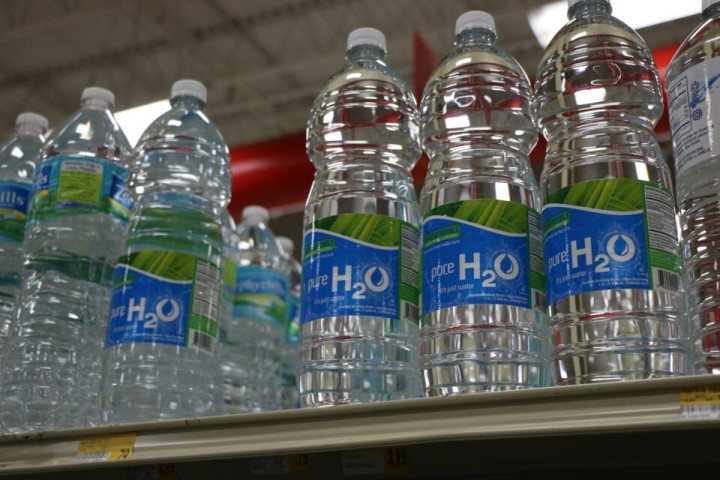Drinking Bottled Water Is 1,400 Times Worse For The Environment Than Tap Water

What is the best water consumption option, taking into account both environmental and health impacts? The question focuses on tap (unfiltered and filtered) versus bottled. It’s what researchers in Spain wanted to know when they embarked on a study to find the answer.
Led by a scientific team from the Barcelona Institute for Global Health (ISGlobal), the study compares the environmental and health impacts of individual water consumption choices to find which offers more overall benefits. The answer is filtered tap water – at least in the city of Barcelona.

(Credit: Henryk Niestrój from Pixabay)
The researchers used Barcelona as a test case due to the robustness of available data. The city is home to approximately 1.35 million people, around 58% of whom consume bottled water at least sometimes. They estimate what the impact would be if everyone switched to drinking bottled water only. Needless to say, bottled water has more of an environmental impact than filling up a glass from the tap. However, the researchers put in numbers just how huge the difference is.
The production required to supply every person in Barcelona drinking bottled water would lead to 1.43 species lost per year and cost US$83.9 million (€71.3 million) annually in the extraction of raw materials (including manufacturing, transportation, distribution, use, and disposal). It’s about a 1,400 times greater impact in ecosystems and 3,500 times higher resource extraction cost than the scenario where everyone shifts to tap water only.
The researchers wrote in their published paper:
The higher environmental impact of bottled water was attributed to the high input of materials (i.e., packaging) and energy needed for bottled water production as compared to tap water.
The team combined the results from a Life Cycle Assessment and Health Impact Assessment to get these figures. Usually, either one is assessed separately, but they combined them to see what sort of health trade-offs there might be between the two choices: filtered versus unfiltered tap water.
Tap water is subject to far stricter regulations from governments, so the consensus is that it and bottled water are evenly safe to drink. However, traces of trihalomethanes may be found in tap water from the cleaning process. The chemical has been linked to bladder cancer, but the risk is minor.
So, if everyone switched to tap water, overall average life expectancy would drop by two hours per person. That’s about 309 years of life-years lost across the population. But by simply adding a domestic filtration to tap water, the risk is reduced substantially, lowering the number of years to 36. However, domestic filtering devices require adequate maintenance to avoid microbial proliferation and for proper performance.
Environmental epidemiologist Cristina Villanueva ISGlobal researcher and first author of the study said:
Tap water quality has increased substantially in Barcelona since incorporating advanced treatments over the last few years. However, this considerable improvement has not been mirrored by an increase in tap water consumption, which suggests that water consumption could be motivated by subjective factors other than quality.
One of these subjective factors is the perceived presence of chemical compounds in tap water. While it is true that tap water may contain trihalomethanes (THM) derived from the disinfection process and that THMs are associated with bladder cancer, our study shows that due to the high quality of the tap water in Barcelona, the risk for health is small, especially when we take into account the overall impacts of bottled water.

(Credit: David Mark from Pixabay)
Recently, consumption of bottled water has been rising sharply worldwide. Previous research links this trend to subjective factors like odor, taste, marketing by bottled water companies, risk perception, and lack of trust in public tap water quality.
Environmental epidemiologist Cathryn Tonne, ISGlobal researcher and last author of the study, said:
Our results show that considering both the environmental and the health effects, tap water is a better option than bottled water because bottled water generates a wider range of impacts.
The use of domestic filters, in addition to improving the taste and odor of tap water, can reduce THMs levels in some cases substantially. For this reason, filtered tap water is a good alternative. Even though we didn’t have enough data to measure its environmental impactfully, we know it is much lower than that of bottled water.
It’s essential to be aware of the environmental consequences of buying and drinking bottled water – not just in the bottle’s disposal but also in the production of the plastic, and in some cases, how the company gets the water.

_0.jpg)